7 Reasons Your Dog Is Definitely a “Daddy’s Girl” or “Mama’s Boy”
Every family with a dog sees it happen. One person gets most of the loyalty, whether it’s Dad or Mom. This isn’t about chance. Dogs notice routines, pick up on comfort, and remember who shows them care. Over time, those details turn into a real attachment. That’s how a dog quietly picks a favorite at home.
Whoever Feeds Me, Owns My Heart
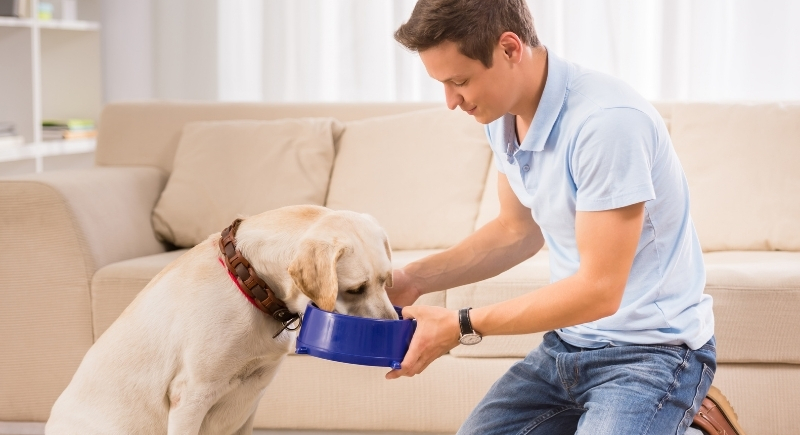
Credit: Getty Images
Dogs not only love food but also the person who gives them food. Research published in Frontiers in Psychology shows that consistent feeding routines build stronger bonds between dogs and humans. If Dad always fills the bowl, guess who becomes the hero? Over time, pets associate care and comfort with the person responsible for their daily meals.
Familiar Scents Trigger Attachment
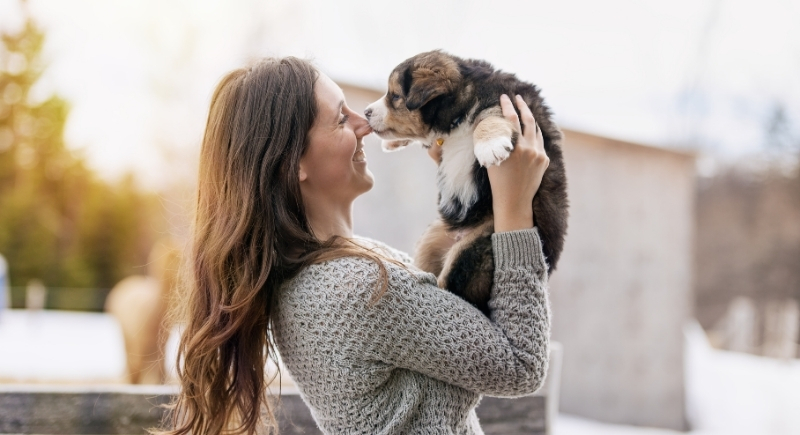
Credit: Getty Images
A dog’s nose is capable of detecting scent at one part per trillion. That’s why your smell matters. If your scent has been around since puppyhood, your dog likely built strong emotional links to it, which helps explain why they seek out one person’s lap over the other’s.
Voice Matters More Than You Think
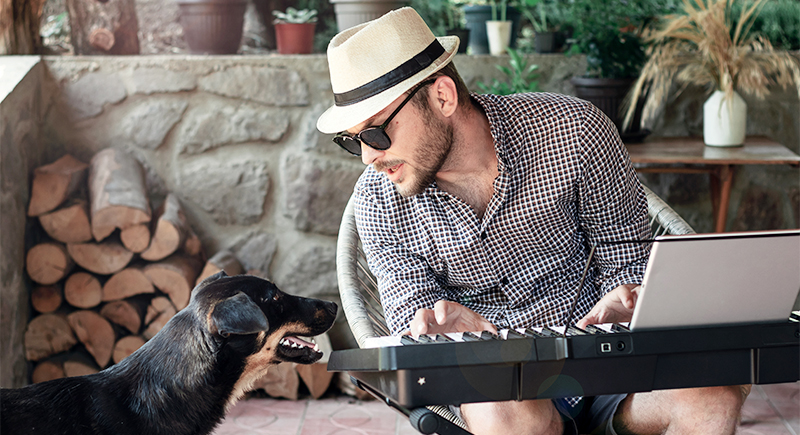
Credit: iStockphoto
Studies from the University of York found that dogs respond better to high-pitched, sing-songy “dog-directed speech,” a style often used more by women. But that doesn’t mean moms always win. If Dad uses that playful voice too, the pup may latch on to him instead.
Cuddle Time Builds Brain Chemistry
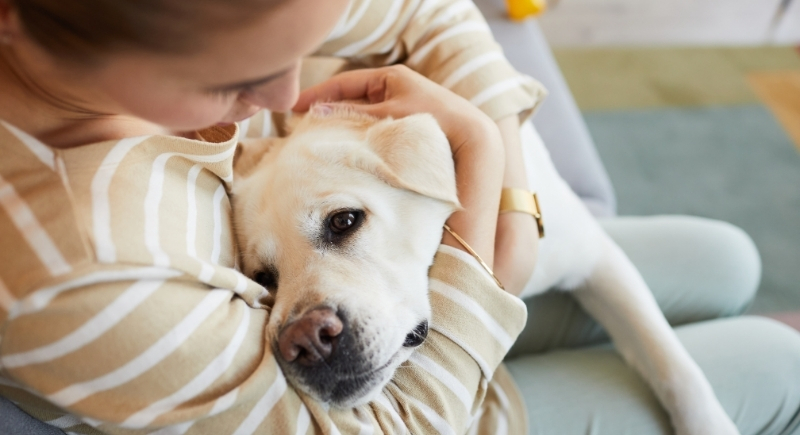
Credit: Canva
Oxytocin, the hormone linked to love and bonding, rises in both dogs and humans during snuggling sessions. Mutual gazing between dogs and their owners increases oxytocin levels, just like between human parents and babies. If your dog’s go-to cuddle partner is Mom, she’s getting a daily dose of science-backed affection, and your pup is reinforcing that warm connection every time they curl up.
Dogs Read Emotions Like a Book
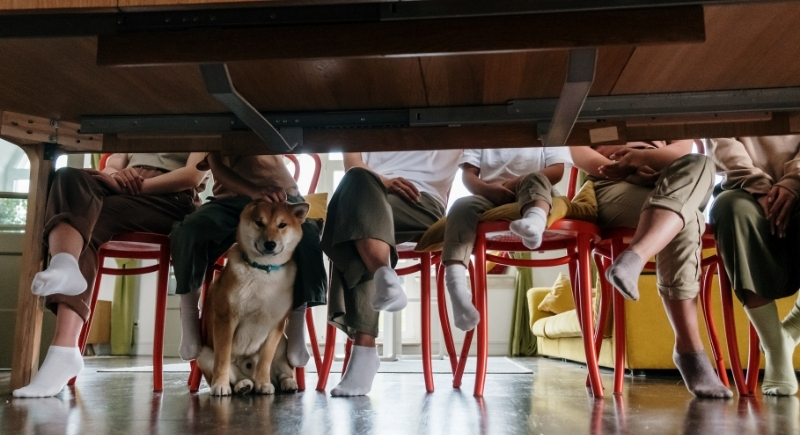
Credit: pexels
When a dog sticks to the calmest person in the room during thunderstorms or loud parties, it’s emotional intelligence at work. They often seek out the person who makes them feel secure. That emotional stability builds trust, which is key to forming long-term loyalty and attachment.
Trust Is Built During Stressful Moments
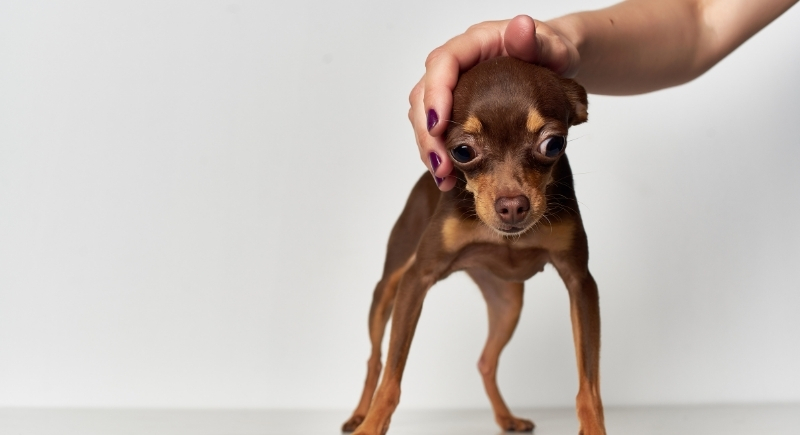
Credit: Canva
It’s not about who plays fetch but about who’s there during tough times. The “secure base effect” noted in research from Applied Animal Behaviour Science shows that dogs seek comfort from their trusted human when scared or uncertain.
Play Style Seals the Deal
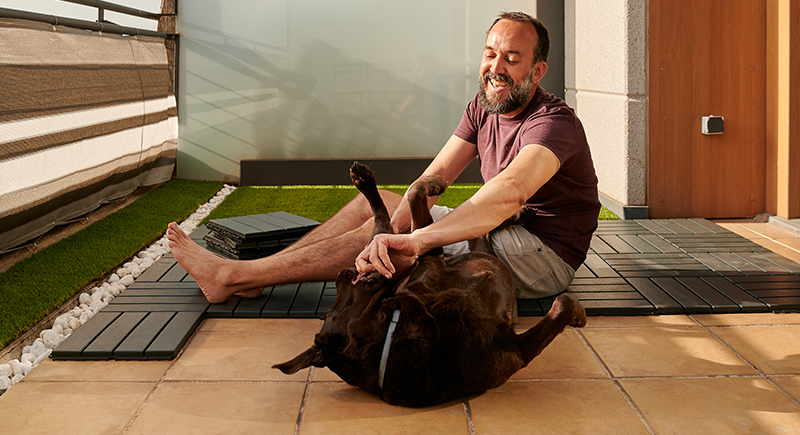
Credit: iStockphoto
Dogs have fun preferences just like people do. Some love roughhousing in the yard, while others prefer gentle petting and puzzle toys. Pups often attach to the human who plays with them in their favorite way. If Dad wrestles on the floor or Mom plays tug-of-war every night, that engagement becomes part of the relationship.
Training Time Creates Teamwork
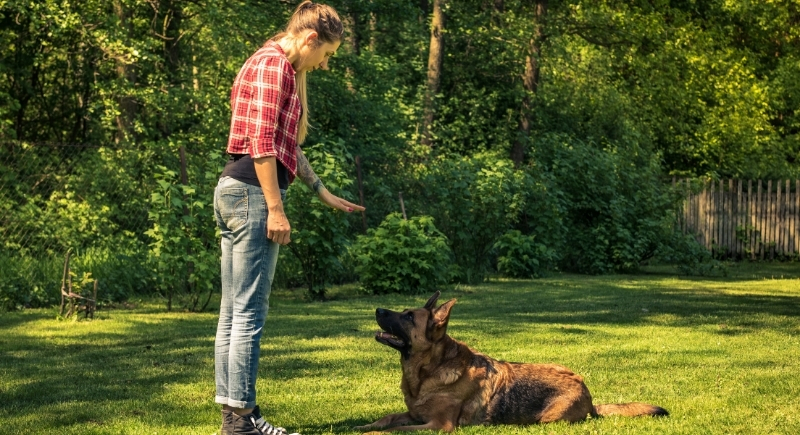
Credit: Canva
Dogs naturally gravitate toward the person who sets clear boundaries and spends time teaching them the ropes. Training is a form of communication and connection. Through repetition, patience, and shared successes, training becomes a relationship-builder that strengthens trust and deepens the human-canine connection.
Routine Builds Reliance
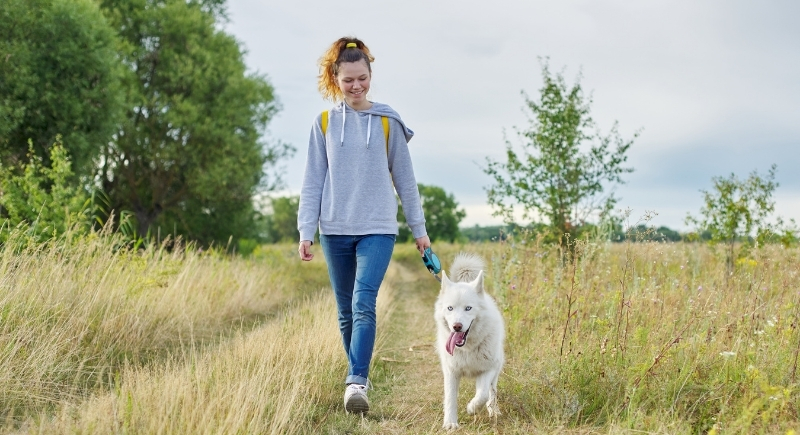
Credit: Canva
If Mom takes the morning walk every day or Dad gives the bedtime treat like clockwork, those routines create positive associations. Over time, these actions become moments of connection. According to the Journal of Veterinary Behavior, routine-driven interactions can shape long-term emotional loyalty in dogs, especially when combined with positive outcomes.
The Calm Energy Match
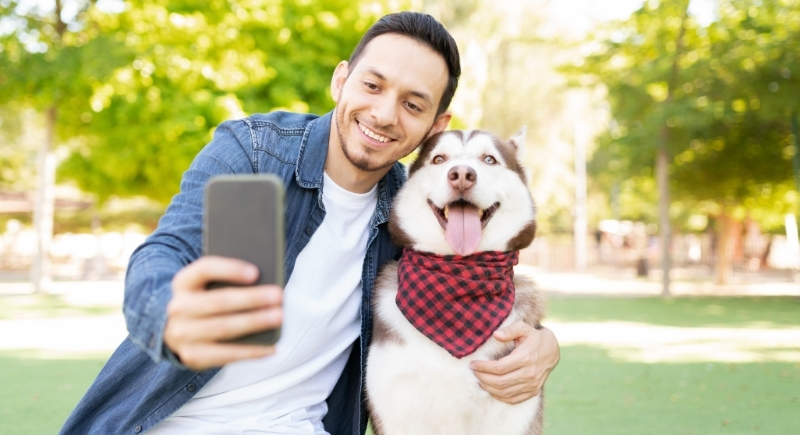
Credit: Getty Images
Some dogs vibe better with calm humans. Canine behaviorists note that dogs often prefer the person whose energy matches theirs. So a nervous dog may lean toward a low-key human, while a high-energy pup may bond with the family goofball. This compatibility is subtle but powerful, and often explains why a laid-back dog won’t leave the side of the most relaxed human in the room.
Dogs Remember Who They Trust
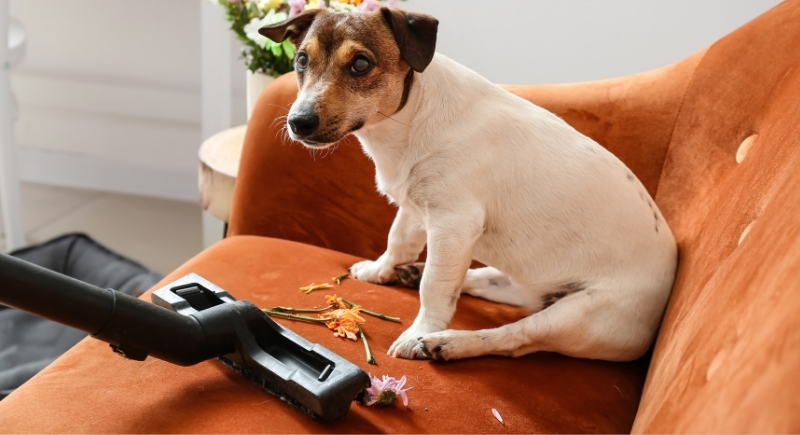
Credit: pixelshot
Memory plays a role, too, because they are great at recalling emotional outcomes. If Mom was there when they got scared by the vacuum cleaner and comforted them, that memory sticks. Over time, dogs build a mental “trust bank” based on these little events.
Scent Reinforces Bonding Over Time
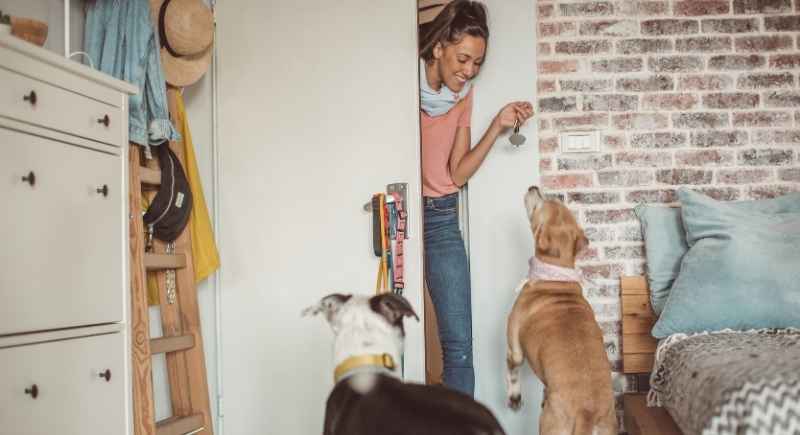
Credit: Getty Images
New research suggests dogs not only remember your scent but also use it as a comfort cue. Functional MRI scans show that a dog’s brain lights up more when smelling its owner than when smelling strangers. If one parent is gone often—say, for work—and returns with familiar scent and attention, that contrast might actually deepen the pet’s attachment.
Dogs Choose the Affection Style They Prefer
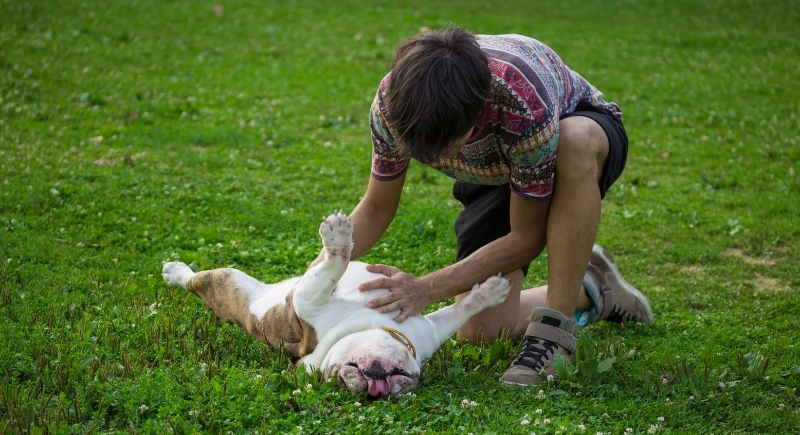
Credit: Canva
The AKC reports that the type of affection a person gives can influence attachment. Some dogs prefer verbal praise and gentle strokes; others want a full-body hug and belly rub. If your affection style clicks with your pup’s comfort zone, the bond tightens naturally.
Gender Preference Is Sometimes a Thing
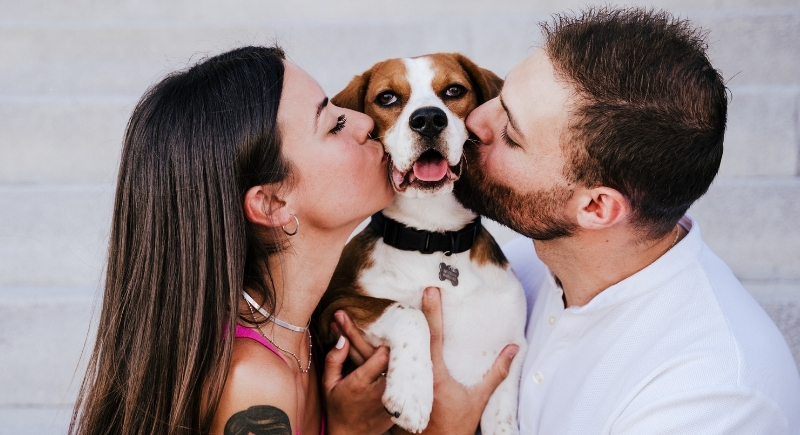
Credit: Canva
Believe it or not, some dogs show a bias toward a specific gender. A study in Anthrozoös noted that dogs sometimes respond more positively to male or female humans depending on past exposure. A pup raised mostly by women may feel safer around them, and vice versa. These preferences aren’t guaranteed, but they help explain why a dog may immediately gravitate toward either Mom or Dad.
Attention Reinforcement Is Everything
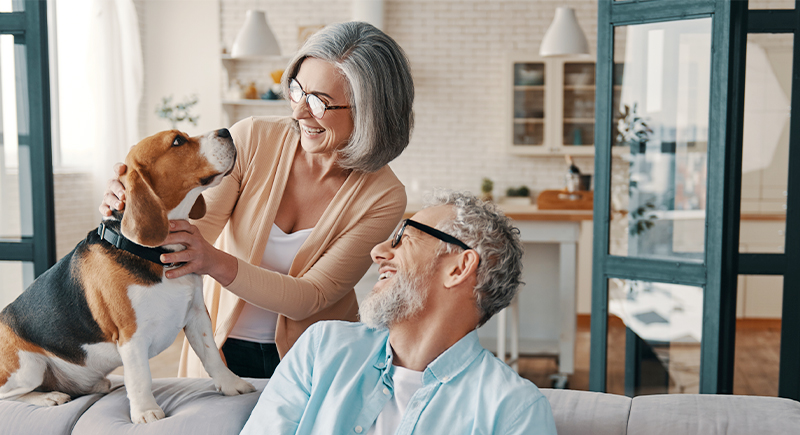
Credit: iStockphoto
The person who pays the most attention, who notices the tail wags, responds to the whines, and greets the dog first, often earns the title of Favorite Human. If Dad always responds to the bark with play or Mom never misses a cue for outside time, the dog learns where the good stuff happens.